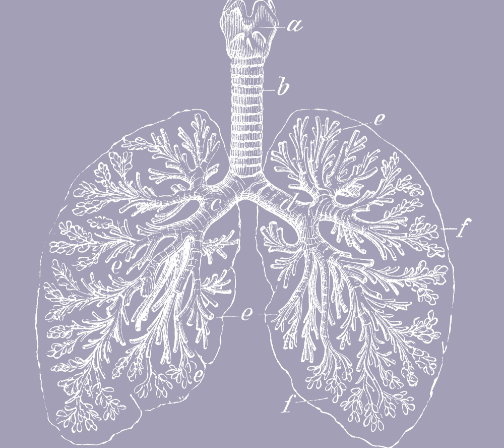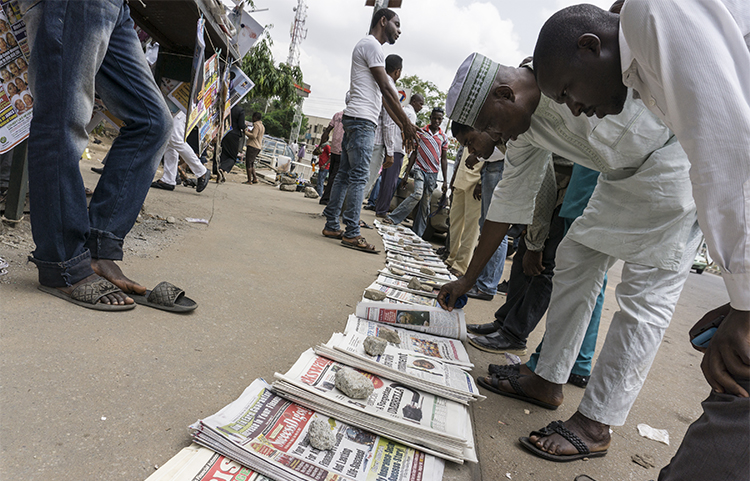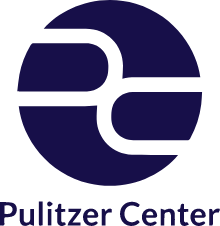


Subscribe
Data delivered to your inbox. Keep up with the latest developments.With sales and advertising declining, media is at a crossroads.
This story was originally published on The Guardian Nigeria, as written by Olufunmilayo Habibat Obadofin.

Over 160 days after the first case of the COVID-19 virus was reported, its outbreak has evidently propelled a huge disruption in individual routine and given rise to a global economic downtime. A popular feature of the economic downtime is the loss of jobs and pay cuts across various industries including aviation, health, finance, agro-allied as well as the Nigerian media industry.
The pandemic has caused media outlets in the country to experience a significant drop in revenue, as a result of a drop in sales and advertisement.
A reporter that was interviewed shared that the times are quite bad for her and the organization. This is because there has been a challenge in getting advertisements and in running other special projects to raise funds for financing the organization.
As of the time of the interview with her (June, 12), only a percentage of February salary has been paid. She added that the non-editorial staff is usually given preference with the payment of salary, as it is believed that editorial staff are more likely to get tips from clients than the non-editorial staff.
Before Covid-19 outbreak, Nigeria had recorded a yearly increase in its unemployment rate, and the situation has further deteriorated with the pandemic.
According to a survey conducted by the Nigeria Bureau of Statistics and the World bank, more Nigerians in the lowest consumption quantiles have lost their jobs between April and May. Equally, there has been an income loss, especially for non-farm businesses.
On May 29, some staff of the Punch Newspaper closed work with the sad news of either a termination of employment or a slash in salary. For those who could read between the lines, this has come as no surprise because before then, the newspaper outlet had reduced the pages of its newspaper from 48 to 32 pages, the reason hinged on a rapid drop in readership due to the lockdown. Besides and according to a publication by Nairametrics the Managing Director, Ademola Osinubi had prevised the staff of the new development in a memo released earlier.
“This pandemic has dealt with our business telling and severe blows. Our circulation and advertisement revenues dipped dangerously, compounding the operational and revenue challenges birthed by the migration of a majority of print newspaper readers and adverts to digital platforms.
“I am not at liberty to disclose all of the measures that the management has taken so far. But the ones that could be made public include an immediate reduction in print pagination; staff furloughing to comply with government and expert advisories on social distancing; the temporary shutdown of the sports newspaper; and significant financial reengineering”.
“All projections point at a bleak and uncertain future for the media industry and the economy.”
This reality is also shared by other notable media houses in the country. According to a report by Nairametrics, the Nation newspaper has sacked 100 out of its about 500 workers across the nation. Other media outlets affected include the news-telegraph, Daily Independence newspaper, AIM group (owners of Nigeria Info., Cool FM, Wazobia, and Arewa) and even entertainment outlets such as Iroko TV. Beyond the loss of jobs and slash in pay; furlough and closure of media outlets are also dangers recently permeating the media industry.
The Chairman of Nigeria Union of Journalist (NUJ) Lagos State Chapter Dr Akinreti in an interview confirmed that the media being a service industry is badly affected by the pandemic, and there has been a drastic fall in income for journalists and newsrooms. He added that only state-owned outlets are not as affected due to the provision of the state’s subvention.
According to him, some organizations have resorted to salary cut for employees ( as low as 20-40% of actual salary) and/or sending staff on a three months compulsory leave. Going further, he made it known that organizations who have taken these measures are equally not happy, but the present financial crisis has necessitated such actions. However, negotiations are ongoing to develop a mutual fair plan between organizations and employees. He said, “this is important as the financial downtimes are beginning to affect the morale of journalists”.
The narrative is not different in the global space, on May 27, BBC News, reported the UK Financial times print sales falling by 39% in April, though advertising has not. Also, ITV’s advertising revenue fell by 42% in April, and FOX in the US dropped by 50%. A survey by the Network times reports that close to 36,000 media workers have been laid off, furloughed or had pay reduced.
Journalists, locally and globally, have played very active roles in updating the public on measures, best practices and other information to containing the spread of the Corona Virus.
Besides, the Nigerian Journalists also go through the sacrosanct responsibility of updating the citizens with variants of news stories on government activities, security issues, finances, politics, and election updates, etc. For this purpose, frequent movement around the cities, and towns, has been inevitable, and consequently, they are exposed to the risk of contracting the virus.
During the period of total lockdown, journalists were among essential workers authorized for movement to ease the execution of their jobs, which impact cannot be undermined in the fight against the pandemic. Even with this privilege, journalists have reported cases of harassment by Security Men in carrying out their constitutional duties. For instance, on May 19, several journalists along with other essential workers were reported to have been arrested by some of the Nigerian policemen in Lagos state.
The claim around harassment of journalists was consolidated by the Lagos state Chairman, Nigeria Union of Journalist, Dr Akinreti. He said what ought to be a relationship of partners in progress has become a cat and mouse game. In his words, he said, “it’s unfortunate that security officers look at journalists as enemies”. He made a plea that security officers should begin to accord the press the respect they deserve and support them in the course of their work.
A journalist, from Daily Independence, also complained that she had been impeded in the course of her work. She recounted one of her experiences during an official assignment “I was on a despatch bike but on getting to Apagbon, Lagos Island bridge, the driver (a despatch rider from another newspaper house I met at my bus stop) was forcefully stopped and the police refused us access despite tendering our identity cards. I had to find my way down to my assignment venue at CMS.”
On October 14, 2019, Amnesty International released a report describing and condemning the treatment of Journalists by the Nigerian Authority. Some of the issues identified include charges of defamation for exposing corruption, on-air personality harassment, the accusation of journalists for cybercrime, stigmatization for investigative journalism, arrest for social media posts amongst others.
Similarly in 2016, the Nigeria Bureau of Statistics in a report informed that over four thousand (4000) journalists along some trade unionist and human rights advocates were either killed, kidnapped, tortured or arbitrarily detained just within a year
Regardless of the pandemic, the situation of shrinking press power has not doused down but rather has taken a new dynamic with the pandemic. An impingement to the work of the Nigerian Journalist that has been underreported is the direct and indirect censorship of some of the Covid-19 news updates. One of these is the action of the Nigerian Federal Government in its decision to suspend over 80 journalists from accessing the presidential villa. The Committee for the Protection of Journalist, CPJ reported that presently only 16 journalists both from private and public media outlets are allowed to the Villa. Although the action may be described to comply with the social distancing policy, it could affect the efficiency and promptness of the suspended media outlets in providing Nigerians with a direct update on the Federal Government efforts against COVID-19.
Instead of the suspension, a rotating schedule with more numbers of journalists, and the provision of more safety equipment to journalists could have been adopted.
Notwithstanding the increase in responsibilities and lesser pay cum labour, it is noteworthy to say that the Nigerian journalists have done remarkably well, in carrying out their constitutional responsibilities during this period.
Most of the broadcast stations have managed to sustain a series of informative programs both related to and outside the Covid-19 updates. Also, a lot of TV advertisements have been modified to fit the current realities. One notable achievement by Nigerian journalists is the data-driven report on the Nigerian government conditional cash transfer, a social intervention to reduce the impact of the pandemic on the poorest of the poor. The report provides the Nigerian public with an explicit outlay of the Nigerian government’s conditional transfer during the pandemic, the plight of Nigerians doctors, and other health workers, some challenges faced by journalists during the pandemic amidst other applaudable information. Another is the prompt and regular debunking of fake news, by providing credible information about the Covid-19 virus.
Consequences of a Falling Newsroom
Ravaging the society, alongside the Covid-19 pandemic, is the voluminous fake news otherwise known as infodemic by the WHO. From a UNESCO statistics, in April alone, Facebook flagged 50million pieces of content, twitter challenged over 1.5 million users, while google blocked almost an 18 million scam email on Gmail all related to Covid-19. These facts have raised concerns over the impact of journalism in combating the peril of fake news and misinformation.
The UN Secretary-General, Antonio Guterres highlighted the essential role of the press in combating fake news in his video message to mark the last World Press free day by his statement “the press provides the antidote; verified, scientific, fact-based news and analysis”
The statement of the UN Secretary-General reiterates the indispensable role of the journalists in fighting the infodemic. It is therefore important that we promptly and effectively work against any trial such as the current financial downtime that could deter the works of the journalists. Otherwise, the infodemic may overtake the Covid-19 pandemic in scarring human society.
Patently, the press also known as the fourth estate of the realm has played a role as the watchdog of the society in ensuring that duty bearers are accountable and as much as possible run a transparent and inclusive system with right holders. There have been countless testimonies to this end, most remarkable; the transition from a dictatorship regime to a democratic government, and forging further to preserve the inherent features of the democratic system. A continuous financial mess as we currently hold of the fourth estate would not only reduce the manpower and efficiency of the fourth estate but may as well lure whoever is left off or hurt from the financial tornado into a dirty compromise with any duty bearer willing to geese the palms. Hence a looming fear that the watchdogs are converted into pet dogs.
Furthermore, an unchecked stiffening of the press would deter the public from knowing and making sense of government activities, policies, and societal development especially as it affects them. Conjointly, the press begins to lose its relevance and vigour for which it is built.
Saving the Falling Newsrooms
The present financial jeopardy of newsrooms must be met with a hybrid of both local and global financial intervention to journalism and the media. Presently the Central Bank of Nigeria has committed a 500billion naira (3.3 billion dollars) to the aviation industry and spent over 3trillion naira in the last 8 years bailing out banks according to an investigation by the Daily Sun. Similarly, such benevolence should be extended to the news and media industry.
Legal frameworks and actions that stiffen the freedom of the press should be knocked-off, whilst encouraging a more cordial relationship between the journalists and security officers.
Beyond the rhetorics, government ministries, departments, and agencies should support and ensure that journalists are granted quick and easy access to information at all times.
Outwith the pandemic, the Nigeria Union of Journalism must institutionalize and enforce a substantial and clever welfare scheme for its members. This inter alia includes better remuneration, research allowance, and hazard allowance. Media outlets should also explore the option to launch and/or improve their online presence to retain readership and advert.
This Outbreak story was supported by the Pulitzer Center and Code for Africa‘s WanaData women data science initiative.








